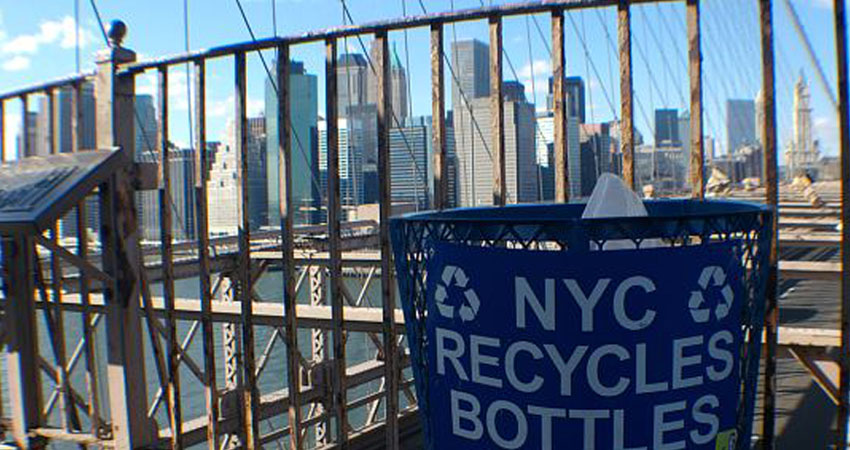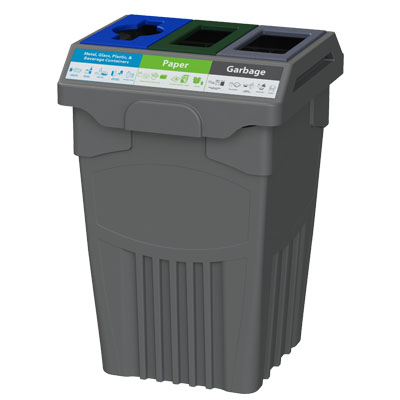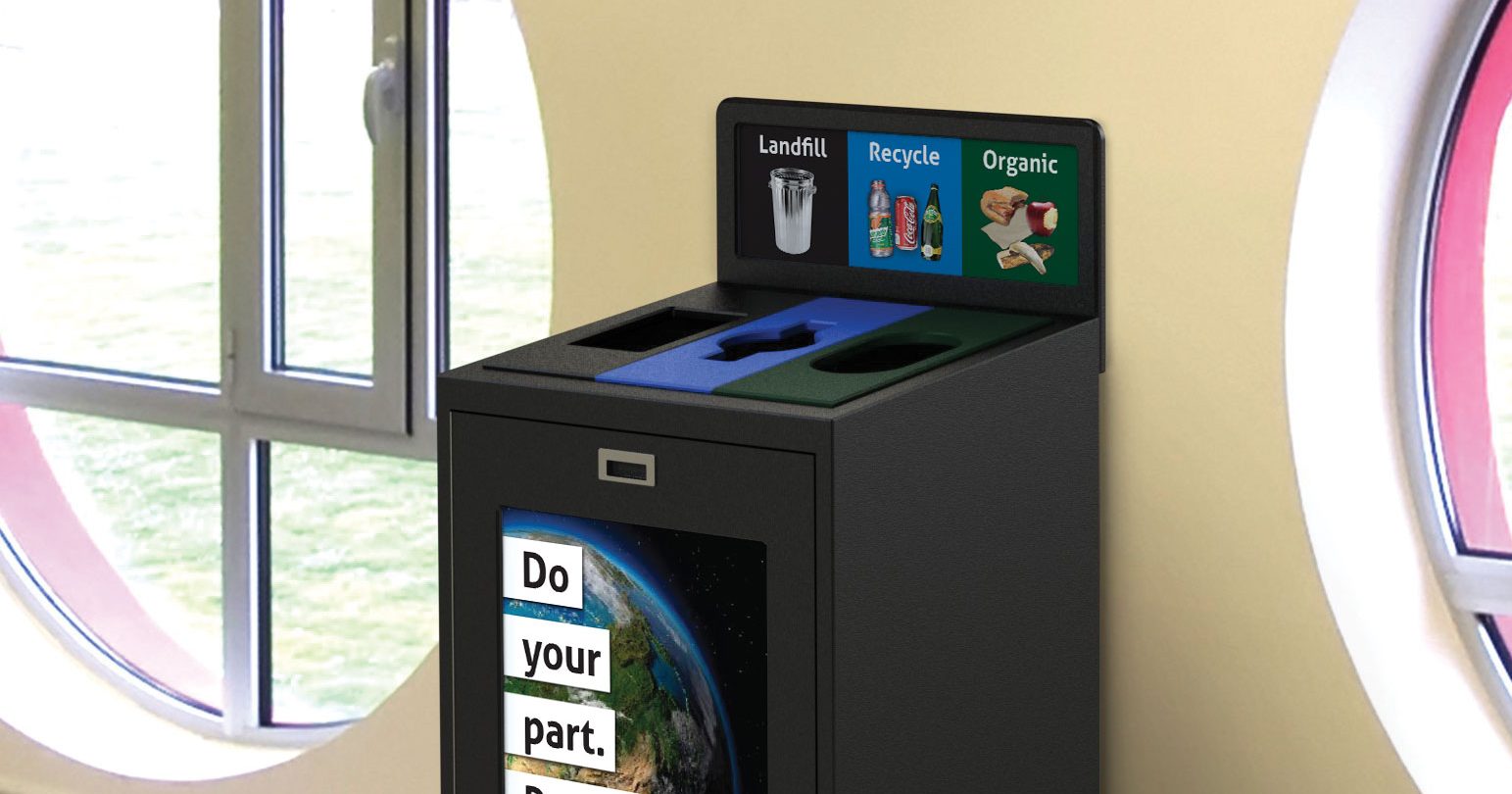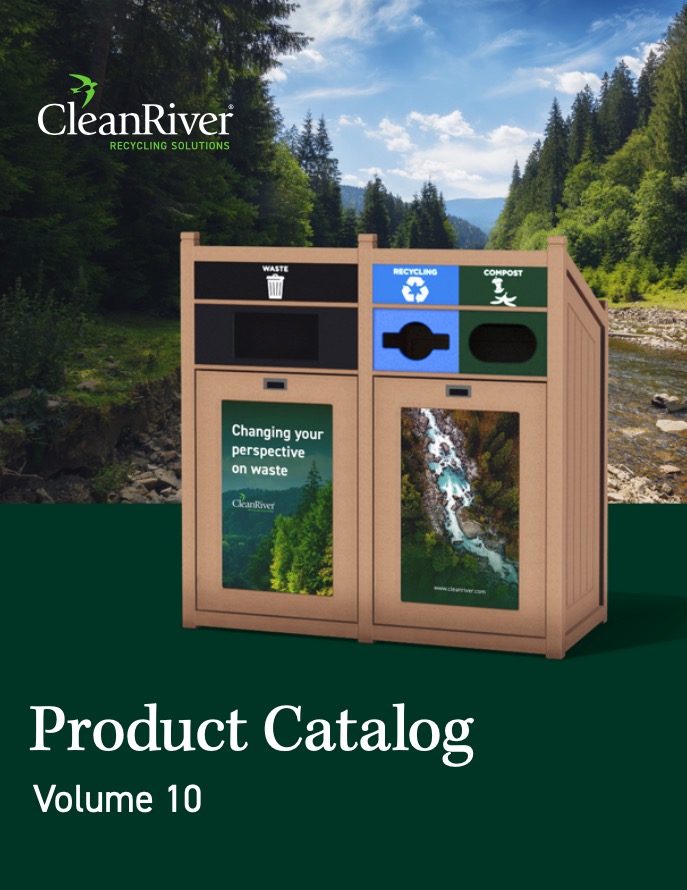Share
New recycling rules for businesses come into effect August 1st in NYC. The intent is to divert a significant amount of waste that is normally sent to landfills into recycling plants instead – up to 54% of the 9,000 tons of waste that businesses generate daily can be recycled. Add the unified organics recycling program to this and 89% of waste can be diverted.
Not only are all NYC businesses required to recycle the materials listed below, but they also must ensure, to the best of their ability, that their recyclables are properly handled by their private waste hauler. The new recycling rules are similar to what’s required for residential buildings, so it should make it easier for waste generators to comply.

CleanRiver’s 6 top tips to help businesses recycle properly in NYC:
1. Make sure certain items don’t end up in the trash
Under these new rules, businesses have to ensure that these items are recycled and don’t go into trash bins:
- Metal
- Glass
- Plastic
- Beverage cartons
- Paper
- Cardboard
Certain businesses are required to recycle other items depending on their size and type. Businesses can either collect all recyclables together or divide them into types of materials, such as paper, plastic, metal, etc. instead.

2. Implement recycling solutions to properly recycle textiles, yard, and food waste
Businesses that generate textile, yard or food waste must also separate them from trash for recycling. All companies that generate this type of organic waste need to ensure that their materials are collected and handled properly for recycling.
3. Always keep recyclables separate from garbage
By law in New York City, never, under any circumstances, can recyclable material be collected in the same bag with garbage or be placed in the same compartment of a truck or container with garbage.
4. Keep the different bins close together
Reduce your stream contamination by keeping waste and recycling bins together. If bins become separated, people will use the closest bin rather than the correct bin to toss their waste.
Avoid penalties by selecting a recycling solution that collects all your streams in one container and use separate bags for each stream so there’s no risk of contamination. You can also coordinate the opening colours with the posters or labels to help people make the right choice.
5. Use High-impact stream labels in your recycling program
There are three types of collection the NYC DOS states you should comply with:
- Source-separated collection
- Co-collection
- Single-stream
Work with your waste hauler to determine which one applies to you and then use high impact graphics to help people toss their waste into the right stream.

6. Use restrictive openings.
This helps people to make the right choice when discarding their waste. It’s often advised to use a narrow opening for paper and a round opening for cans and bottles.
Click here for more details about recycling in NYC for businesses.
CleanRiver is a registered vendor of New York State. Vendor ID: 980454235. To get compliant with the updated NYC recycling mandate, call us at 1-888-646-4246 or email solutions@cleanriver.com.
We partner with our clients to implement our CleanRiver 3C Process which stands for Culture, Communication and Collection to ensure every recycling program is successful. To learn more about the 3Cs Process watch this quick video here.
CleanRiver Recycling provides a variety of innovative, flexible and customizable recycling solutions. To determine the right solution to meet your needs, use the CleanRiver product selector.


